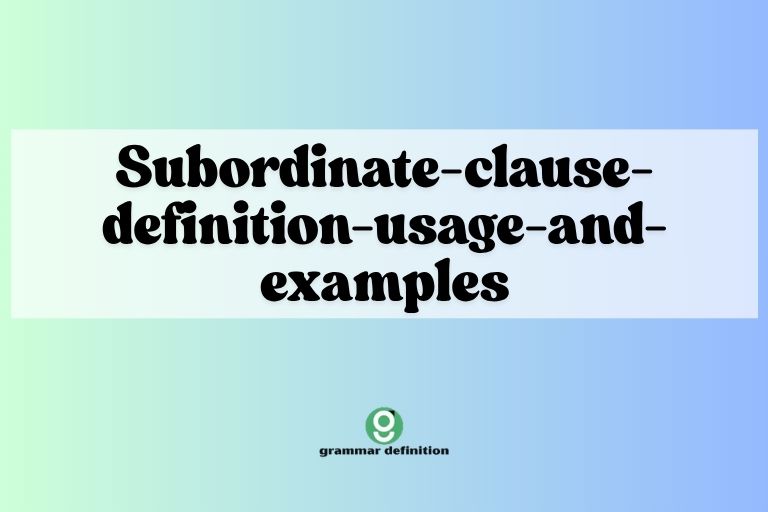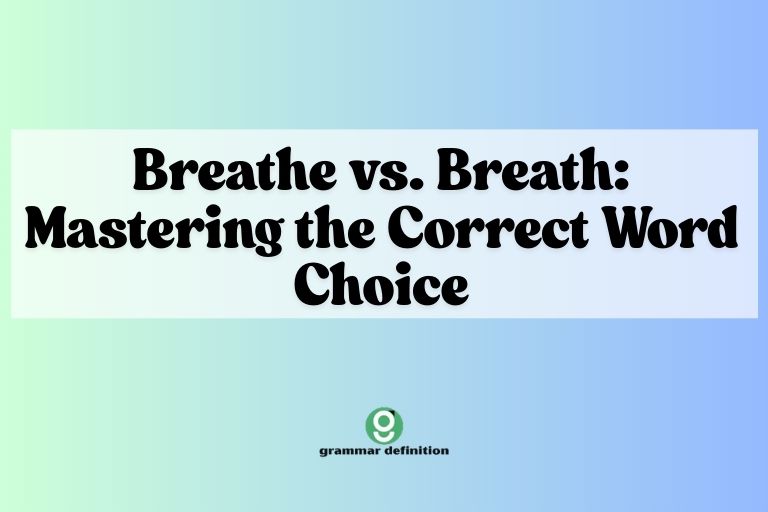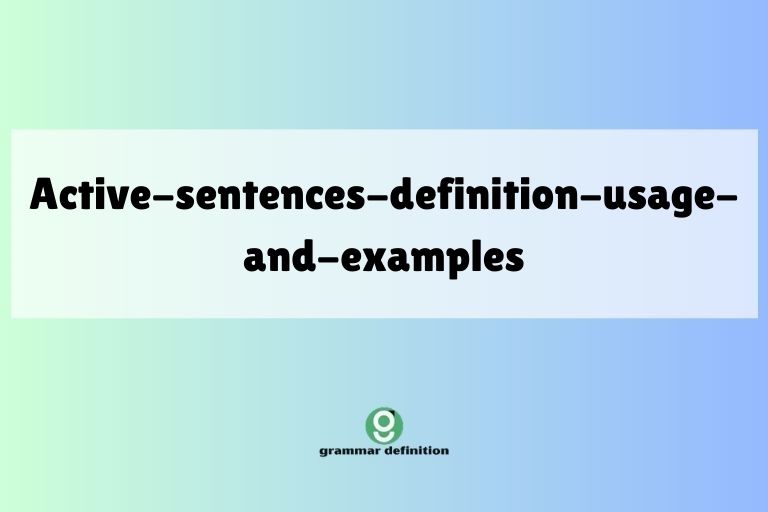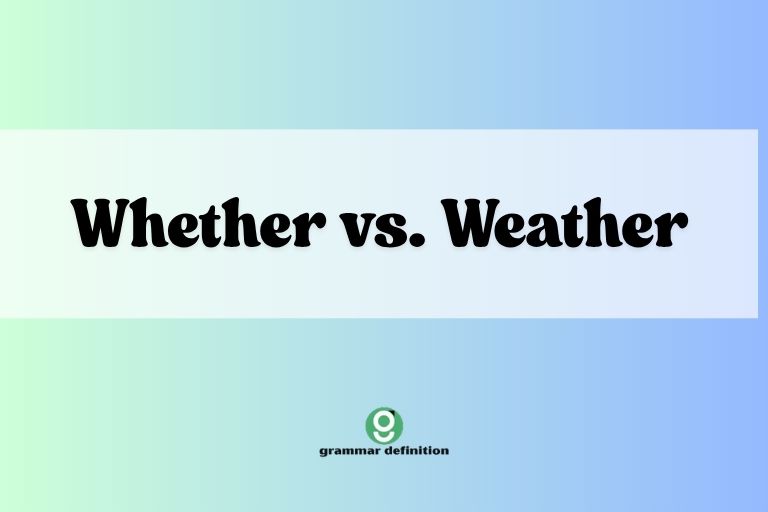What’s the Plural of Stimulus? Mastering Latinate Plurals
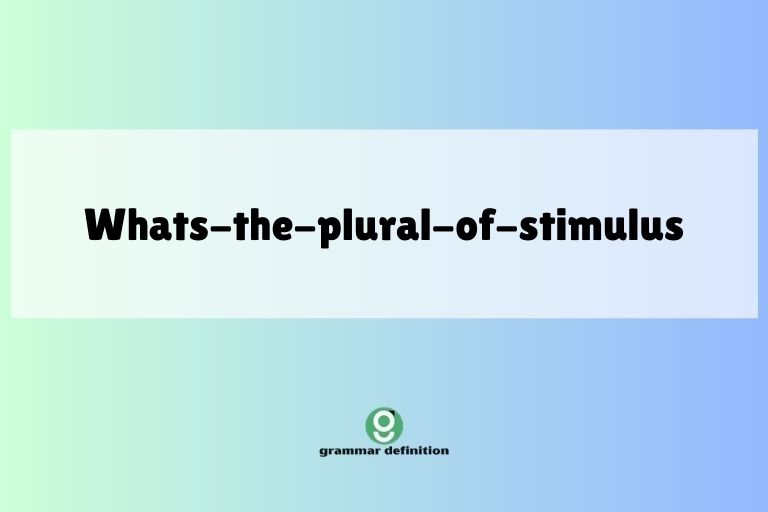
Understanding how to form plurals of nouns borrowed from Latin and Greek can significantly enhance your command of the English language. One such noun is “stimulus,” a word frequently used in various contexts, from science and economics to psychology and everyday conversation.
Knowing that the plural of “stimulus” is “stimuli” is not just about grammatical correctness; it’s about precision and clarity in communication. This article will delve into the nuances of forming the plural of “stimulus,” explore its origins, provide numerous examples, and offer practical exercises to solidify your understanding.
Whether you’re a student, a professional, or simply a language enthusiast, mastering this concept will undoubtedly refine your writing and speaking skills.
Table of Contents
- Introduction
- Definition of Stimulus
- Etymology and Historical Context
- Grammatical Classification
- Structural Breakdown: Singular vs. Plural
- Latin Declensions and Noun Endings
- Irregular Plurals in English
- Examples of Stimulus and Stimuli in Sentences
- Usage Rules for Stimulus and Stimuli
- Common Mistakes
- Practice Exercises
- Advanced Topics: Latinate Plurals in English
- Frequently Asked Questions
- Conclusion
Definition of Stimulus
A stimulus (singular) is something that causes a response or reaction. It can be a physical event, a substance, or even an idea. In essence, a stimulus acts as a trigger, prompting a change or activity in a system, organism, or part. The nature of a stimulus can vary widely depending on the context in which it is used. Understanding the concept of a stimulus is crucial in fields like biology, psychology, economics, and even art and literature.
The plural form, stimuli, refers to multiple such triggers or causes of reaction. It’s important to note that “stimuli” is the grammatically correct plural form derived from its Latin origin. Using “stimuli” indicates that there are several factors or events prompting a response, and using the correct plural form demonstrates a strong grasp of English grammar and vocabulary.
Etymology and Historical Context
The word “stimulus” comes directly from Latin, where it meant “a goad, a pointed stick used to drive cattle.” This original meaning provides a vivid image of something that provokes action. Over time, the word evolved to encompass a broader range of triggers, retaining the core concept of something that incites a response.
The Latin plural form is “stimuli,” and English has adopted this form directly.
Understanding the etymology of “stimulus” helps to appreciate why its plural is “stimuli.” It’s a reminder that English has borrowed extensively from Latin and Greek, and many words retain their original pluralization rules. Recognizing these patterns can make it easier to learn and remember the correct plural forms of similar words.
Grammatical Classification
In English grammar, “stimulus” is classified as a noun, specifically a singular, countable noun. This means that it refers to a person, place, thing, or idea that can be counted. Because it is countable, it has both a singular and a plural form. The plural form, “stimuli,” is also a countable noun. It’s crucial to use the correct form depending on whether you are referring to one stimulus or multiple stimuli.
Furthermore, “stimulus” and “stimuli” function within sentences as subjects, objects, complements, or appositives, depending on their role in the clause. For example, in the sentence “The bright light was a stimulus for the plant’s growth,” “stimulus” functions as a subject complement.
Conversely, in “The scientist studied various stimuli,” “stimuli” acts as the direct object of the verb “studied.”
Structural Breakdown: Singular vs. Plural
The structural difference between “stimulus” and “stimuli” lies in their endings. The singular form ends in “-us,” while the plural form ends in “-i.” This pattern is characteristic of many nouns borrowed from Latin.
Recognizing this pattern can help you correctly pluralize other similar words, such as “radius” (plural: “radii”) and “focus” (plural: “foci”).
Here’s a simple table illustrating the structural difference:
| Form | Ending | Example |
|---|---|---|
| Singular | -us | Stimulus |
| Plural | -i | Stimuli |
This change in ending signals a shift from referring to a single instance of something that provokes a response to referring to multiple instances. The use of “stimuli” correctly indicates that more than one factor is at play, each capable of eliciting a reaction.
Latin Declensions and Noun Endings
The transformation of “stimulus” to “stimuli” is rooted in Latin grammar, specifically the second declension of Latin nouns. Latin nouns are grouped into declensions based on their endings and how they change in different grammatical cases (nominative, genitive, dative, accusative, ablative, and vocative).
“Stimulus” belongs to the second declension, which typically features nouns ending in “-us” in the nominative singular form. The nominative plural form for these nouns usually ends in “-i.”
While understanding the intricacies of Latin declensions is not essential for everyday English usage, it provides valuable context for why certain words have irregular plural forms. Recognizing that “stimulus” follows this pattern can help you remember its correct pluralization.
Many other English words derived from Latin follow similar declension patterns, such as “alumnus” (plural: “alumni”) and “nucleus” (plural: “nuclei”).
Irregular Plurals in English
English has numerous irregular plurals, and these often derive from the language’s rich history. Some irregular plurals come from Old English, while others, like “stimuli,” come from Latin or Greek.
These irregular forms don’t follow the standard “-s” or “-es” pluralization rule, making them challenging for learners.
Here’s a table comparing regular and irregular plural forms in English:
| Category | Singular | Plural | Rule |
|---|---|---|---|
| Regular | Cat | Cats | Add -s |
| Regular | Box | Boxes | Add -es |
| Irregular (Latinate) | Stimulus | Stimuli | -us to -i |
| Irregular (Latinate) | Radius | Radii | -us to -i |
| Irregular (Old English) | Child | Children | Irregular |
| Irregular (Old English) | Mouse | Mice | Irregular |
Understanding the origins and patterns of irregular plurals can significantly improve your accuracy and confidence in using English. Recognizing that “stimuli” belongs to the category of Latinate plurals can help you remember its correct form and apply the same rule to similar words.
Examples of Stimulus and Stimuli in Sentences
The best way to master the usage of “stimulus” and “stimuli” is to see them in context. Here are several examples, categorized by different fields, to illustrate their proper use.
Scientific Context
In scientific research, understanding the relationship between stimuli and responses is crucial. Here are some examples demonstrating the use of “stimulus” and “stimuli” in scientific contexts:
| # | Sentence |
|---|---|
| 1 | The researcher applied a visual stimulus to observe the subject’s reaction. |
| 2 | The experiment involved multiple auditory stimuli to test the participants’ hearing range. |
| 3 | Light is a critical stimulus for photosynthesis in plants. |
| 4 | The study investigated how different olfactory stimuli affect memory recall. |
| 5 | A single electrical stimulus triggered a muscle contraction. |
| 6 | The scientist controlled various environmental stimuli to ensure accurate results. |
| 7 | Temperature change acted as a stimulus for the chemical reaction. |
| 8 | The laboratory used a range of tactile stimuli to study sensory perception. |
| 9 | The drug acted as a stimulus, increasing neuronal activity. |
| 10 | The team analyzed how combined visual and auditory stimuli influenced cognitive performance. |
| 11 | This hormone acts as a stimulus for cell growth. |
| 12 | The plant’s response to various light stimuli was carefully documented. |
| 13 | The introduction of a new chemical stimulus altered the solution’s properties. |
| 14 | The study examines how different thermal stimuli are processed by the brain. |
| 15 | Pain can be a powerful stimulus for behavioral change. |
| 16 | Doctors use a variety of physical stimuli to assess neurological function. |
| 17 | The introduction of a predator acted as a strong stimulus for the prey’s defensive behavior. |
| 18 | The scientists presented varied gustatory stimuli to evaluate taste sensitivity. |
| 19 | The application of an electrical stimulus caused the nerve to fire. |
| 20 | The experiment measured the organism’s reaction to different types of environmental stimuli. |
| 21 | The presence of food acted as a stimulus for the animal’s foraging behavior. |
| 22 | The researchers manipulated several visual stimuli to study perception. |
| 23 | In this study, sound served as the primary stimulus. |
| 24 | The combination of drugs acted as multiple powerful stimuli. |
| 25 | The odor of the chemical was a potent stimulus for the rats. |
| 26 | The various stimuli were designed to elicit different responses. |
| 27 | Each stimulus was carefully calibrated for intensity. |
| 28 | The system responds differently to various types of stimuli. |
| 29 | The introduction of the new stimulus significantly altered the system’s behavior. |
| 30 | A series of light flashes were used as visual stimuli. |
Economic Context
In economics, a stimulus often refers to a measure taken by governments to boost economic activity. Here are some examples:
| # | Sentence |
|---|---|
| 1 | The government introduced an economic stimulus package to combat the recession. |
| 2 | Tax cuts acted as a financial stimulus for consumers. |
| 3 | Lower interest rates provided a stimulus to the housing market. |
| 4 | Various government policies served as economic stimuli to encourage investment. |
| 5 | Increased public spending was intended as a stimulus for job creation. |
| 6 | The infrastructure project served as a stimulus to the local economy. |
| 7 | The new trade agreement provided a stimulus for export growth. |
| 8 | Several financial stimuli were proposed to revitalize the industry. |
| 9 | The central bank implemented a monetary stimulus to increase lending. |
| 10 | Investment in renewable energy acted as a stimulus for green jobs. |
| 11 | The reduction in corporate taxes served as a stimulus for business expansion. |
| 12 | The new economic policies provided multiple stimuli for growth. |
| 13 | A large government contract acted as a significant stimulus for the company. |
| 14 | The package of financial incentives served as stimuli for development. |
| 15 | The market responded positively to the economic stimulus. |
| 16 | These measures are intended as economic stimuli. |
| 17 | The economic recovery relied on a strong stimulus. |
| 18 | The government hoped various tax breaks would serve as economic stimuli. |
| 19 | The investment boost was designed as a stimulus. |
| 20 | The effect of these economic stimuli remains to be seen. |
| 21 | The government is considering a new stimulus package. |
| 22 | The market reacted positively to the new economic stimuli. |
| 23 | The policy represents a significant economic stimulus. |
| 24 | These policies aim to provide economic stimuli. |
| 25 | The intervention acted as a powerful stimulus. |
| 26 | The combined effects of the various stimuli were substantial. |
| 27 | Each stimulus was intended to boost a specific sector. |
| 28 | The economy responds differently to various types of stimuli. |
| 29 | The introduction of the stimulus package significantly improved market confidence. |
| 30 | The government is injecting capital into the economy as a stimulus. |
Psychological Context
In psychology, a stimulus is any event or object that elicits a sensory or behavioral response. Here are some examples:
| # | Sentence |
|---|---|
| 1 | The psychologist used a series of visual stimuli to study perception. |
| 2 | A loud noise can be a stimulus for the startle reflex. |
| 3 | The therapist used various verbal stimuli to trigger emotional responses. |
| 4 | Classical conditioning involves pairing a neutral stimulus with a conditioned response. |
| 5 | The researcher investigated how different auditory stimuli affect mood. |
| 6 | The scent of lavender can act as a calming stimulus. |
| 7 | Exposure to violent media can be a stimulus for aggressive behavior. |
| 8 | The experiment explored how different social stimuli influence decision-making. |
| 9 | The promise of reward served as a stimulus for increased effort. |
| 10 | The child responded to various tactile stimuli during the sensory integration therapy. |
| 11 | The image acted as a stimulus for creativity. |
| 12 | The researchers used a variety of visual stimuli to test reaction times. |
| 13 | The taste of the food was a strong stimulus for salivation. |
| 14 | The psychologist studied how different emotional stimuli affect memory. |
| 15 | The presence of others can be a stimulus for conformity. |
| 16 | The therapist used a range of therapeutic stimuli. |
| 17 | The challenge served as a stimulus for improvement. |
| 18 | The study examined how different environmental stimuli impact stress levels. |
| 19 | The encouragement acted as a stimulus for the student. |
| 20 | The experiment sought to understand how various stimuli affect cognitive processes. |
| 21 | The game was designed to provide a stimulus for learning. |
| 22 | The psychologist presented various auditory stimuli. |
| 23 | The task acted as a positive stimulus. |
| 24 | The combined effect of the stimuli was significant. |
| 25 | The feeling of warmth was a pleasant stimulus. |
| 26 | The person responded well to the stimuli. |
| 27 | Each stimulus was chosen to elicit a specific response. |
| 28 | The brain responds differently to various types of stimuli. |
| 29 | The introduction of the new stimulus changed the subject’s behavior. |
| 30 | A series of images was used as visual stimuli. |
Everyday Context
In everyday language, “stimulus” and “stimuli” can refer to anything that prompts a reaction or motivates someone. Here are some examples:
| # | Sentence |
|---|---|
| 1 | The smell of coffee is a stimulus that wakes me up in the morning. |
| 2 | The city’s vibrant atmosphere provides constant creative stimuli. |
| 3 | Listening to music can be a stimulus for productivity. |
| 4 | The positive feedback acted as a stimulus for continued improvement. |
| 5 | Various external stimuli can affect our mood and behavior. |
| 6 | The thought of a vacation is a stimulus to work harder. |
| 7 | The challenge of learning a new skill can be a stimulus for personal growth. |
| 8 | The beauty of nature provides endless stimuli for artists. |
| 9 | The encouragement from friends acted as a stimulus to pursue my dreams. |
| 10 | The desire to succeed is a powerful stimulus. |
| 11 | The anticipation of the event acted as a stimulus to get things done. |
| 12 | The bright colors provided a visual stimulus. |
| 13 | The lively conversation acted as a mental stimulus. |
| 14 | The promise of a reward was a stimulus to complete the task. |
| 15 | The need to achieve acted as a stimulus. |
| 16 | The opportunity was a great stimulus. |
| 17 | The new experiences provided many stimuli. |
| 18 | The change of scenery was a welcome stimulus. |
| 19 | The goal served as a stimulus. |
| 20 | The various challenges provided stimuli. |
| 21 | The prospect of a new adventure was a stimulus. |
| 22 | The variety of activities provided mental stimuli. |
| 23 | The idea acted as a stimulus. |
| 24 | The combined stimuli created a sense of excitement. |
| 25 | The challenge was a powerful stimulus. |
| 26 | The person responded positively to the stimuli. |
| 27 | Each stimulus was designed to inspire. |
| 28 | The environment provides many kinds of stimuli. |
| 29 | The introduction of the new stimulus changed the atmosphere. |
| 30 | A series of interesting events provided stimuli. |
Usage Rules for Stimulus and Stimuli
The primary rule is to use “stimulus” when referring to a single trigger or cause and “stimuli” when referring to multiple triggers or causes. This distinction is crucial for maintaining grammatical accuracy and clarity.
Here are some additional guidelines:
- Singular form: Use “stimulus” with singular verbs and articles (a, an, the). Example: “The stimulus was effective.”
- Plural form: Use “stimuli” with plural verbs. Example: “The stimuli were effective.”
- Context matters: Pay attention to the context to determine whether you are referring to one or multiple stimuli.
While “stimuli” is the standard plural form, some speakers might occasionally use “stimuluses,” particularly in informal contexts. However, “stimuli” is always the preferred and grammatically correct choice in formal writing and speech.
Common Mistakes
One of the most common mistakes is using “stimulus” as a plural form or using “stimuli” as a singular form. Here are some examples of common errors and their corrections:
| Incorrect | Correct | Explanation |
|---|---|---|
| The experiment used multiple stimulus. | The experiment used multiple stimuli. | “Stimuli” is the plural form. |
| The stimuli was effective. | The stimulus was effective. | “Stimulus” is the singular form and requires a singular verb. |
| We need more stimulus to motivate them. | We need more stimuli to motivate them. | Referring to multiple motivating factors requires the plural form. |
| Each stimuli had a different effect. | Each stimulus had a different effect. | “Each” indicates a singular subject. |
Another common mistake is using “stimuluses” as the plural form. While this form might be encountered occasionally, it is generally considered incorrect.
Always use “stimuli” for the plural.
Practice Exercises
Test your understanding of “stimulus” and “stimuli” with these practice exercises. Fill in the blanks with the correct form of the word.
| # | Question | Answer |
|---|---|---|
| 1 | The bright light acted as a strong ________ on the plant. | stimulus |
| 2 | The scientist studied how different ________ affect the subject’s behavior. | stimuli |
| 3 | The government introduced an economic ________ to boost the economy. | stimulus |
| 4 | The therapist used various verbal ________ to elicit emotional responses. | stimuli |
| 5 | The smell of food is a powerful ________ for hunger. | stimulus |
| 6 | The experiment involved presenting several visual ________ to the participants. | stimuli |
| 7 | A loud noise can be a ________ for the startle reflex. | stimulus |
| 8 | The economic ________ package was designed to create jobs. | stimulus |
| 9 | The psychologist used a range of ________ to study perception. | stimuli |
| 10 | The promise of a reward acted as a ________ for increased effort. | stimulus |
Answers: 1. stimulus, 2. stimuli, 3. stimulus, 4. stimuli, 5. stimulus, 6. stimuli, 7. stimulus, 8. stimulus, 9. stimuli, 10. stimulus
Exercise 2: Choose the correct form (stimulus or stimuli) in the following sentences:
| # | Question | Answer |
|---|---|---|
| 1 | The (stimulus/stimuli) was carefully controlled in the experiment. | stimulus |
| 2 | The brain processes multiple (stimulus/stimuli) simultaneously. | stimuli |
| 3 | Each (stimulus/stimuli) was designed to elicit a specific response. | stimulus |
| 4 | The (stimulus/stimuli) were presented in random order. | stimuli |
| 5 | The primary (stimulus/stimuli) for the plant’s growth is sunlight. | stimulus |
| 6 | The (stimulus/stimuli) caused a significant change in behavior. | stimulus |
| 7 | The researchers analyzed the effects of various (stimulus/stimuli). | stimuli |
| 8 | The (stimulus/stimuli) was intended to provoke a reaction. | stimulus |
| 9 | The (stimulus/stimuli) elicited a strong emotional response. | stimulus |
| 10 | The (stimulus/stimuli) were chosen to represent a wide range of emotions. | stimuli |
Answers: 1. stimulus, 2. stimuli, 3. stimulus, 4. stimuli, 5. stimulus, 6. stimulus, 7. stimuli, 8. stimulus, 9. stimulus, 10. stimuli
Advanced Topics: Latinate Plurals in English
The pluralization of “stimulus” is just one example of how Latin and Greek have influenced English grammar. Many other English words retain their original Latin or Greek plural forms.
Understanding these patterns can significantly enhance your vocabulary and grammatical accuracy.
Here are some common Latinate plurals in English:
- -us to -i: alumnus (alumni), radius (radii), focus (foci), nucleus (nuclei)
- -a to -ae: alumna (alumnae), larva (larvae), formula (formulae)
- -um to -a: datum (data), curriculum (curricula), bacterium (bacteria)
- -ex to -ices: index (indices), vertex (vertices), matrix (matrices)
- -is to -es: axis (axes), crisis (crises), thesis (theses)
While some of these words have also developed regular English plurals (e.g., “formulas” instead of “formulae”), the Latinate plurals are generally preferred in formal contexts. However, usage can vary, and it’s always best to consult a dictionary or style guide if you’re unsure.
Frequently Asked Questions
- Is “stimuluses” an acceptable plural form?
No, “stimuluses” is generally considered incorrect. The correct plural form is “stimuli.” While you might occasionally encounter “stimuluses” in informal contexts, it is not the preferred or grammatically accurate form.
- Why is the plural of “stimulus” “stimuli”?
The plural form “stimuli” comes directly from Latin. “Stimulus” is a Latin word, and it retains its original Latin pluralization rule, where nouns ending in “-us” in the singular form typically change to “-i” in the plural form.
- Are there other words that follow the same pluralization rule as “stimulus”?
Yes, many other English words borrowed from Latin follow the same pluralization rule. Examples include “radius” (plural: “radii”), “focus” (plural: “foci”), “nucleus” (plural: “nuclei”), and “alumnus” (plural: “alumni”).
- When should I use “stimulus” and when should I use “stimuli”?
Use “stimulus” when referring to a single trigger or cause. Use “stimuli” when referring to multiple triggers or causes. The context of your sentence will determine which form is appropriate.
- Is it important to use the correct plural form?
Yes, using the correct plural form is important for grammatical accuracy and clarity. Using the wrong form can make your writing or speech sound incorrect and can potentially confuse your audience.
- Can I use “stimuli” as a singular noun?
No, “stimuli” is strictly a plural noun. You should always use “stimulus” when referring to a single instance.
- Are Latinate plurals becoming less common in English?
While some Latinate plurals are being replaced by regular English plurals (e.g., “formulas” instead of ”
formulas”), many remain common and preferred in formal writing. It’s essential to be aware of both forms and choose the one that is most appropriate for your audience and context.
- How can I remember that the plural of “stimulus” is “stimuli”?
One helpful way to remember is to associate “stimulus” with other similar Latinate nouns that follow the same pluralization rule. Thinking of “radius” (radii), “focus” (foci), and “nucleus” (nuclei) can help reinforce the pattern in your mind.
- Is it ever acceptable to use “stimuluses” in very informal contexts?
While language is constantly evolving, and informal usage can vary, “stimuluses” is generally not considered a standard or acceptable plural form. Even in informal contexts, it’s best to use “stimuli” to maintain clarity and avoid potential confusion.
- What resources can I use to check the correct plural form of other Latinate nouns?
Reliable dictionaries, such as Merriam-Webster and Oxford Dictionaries, are excellent resources for checking the correct plural forms of Latinate nouns. Style guides like the Chicago Manual of Style and the AP Stylebook also provide guidance on preferred plural forms in formal writing.
Conclusion
Mastering the plural form of “stimulus” – understanding that it is “stimuli” – is a valuable step in refining your English language skills. This knowledge not only enhances your grammatical accuracy but also demonstrates a deeper appreciation for the nuances of language and its historical roots.
By understanding the etymology, grammatical classification, and usage rules of “stimulus” and “stimuli,” you can confidently use these words in a variety of contexts, from scientific and economic discussions to everyday conversations. Remember to practice using these words in your writing and speech, and don’t hesitate to consult dictionaries and style guides when in doubt.
With a little effort, you can master Latinate plurals and elevate your communication skills to the next level.



